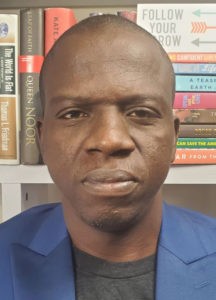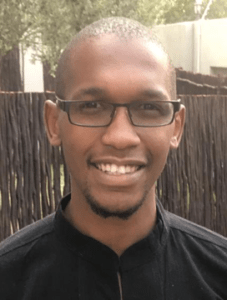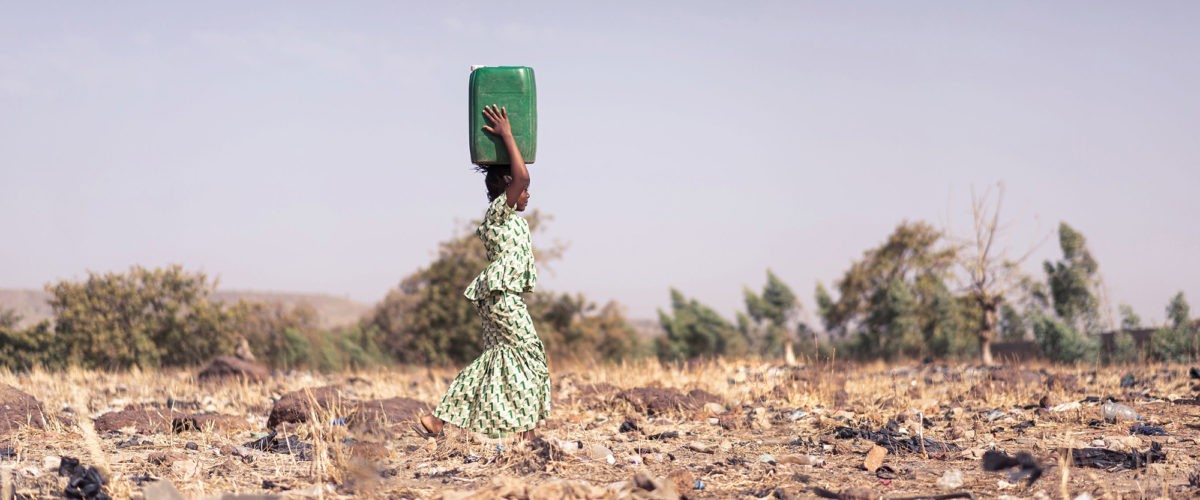COVID-19 took a toll on climate change. Activists in Africa say that toll has been both negative and positive.
Oluwatosin Kolawole, a Nigerian climate change activist, normally is an active advocate who monitors events in the industry and is ready to board a flight for climate-related events around the world. But over the last year the pandemic led to lockdowns around the world, so his travel plans have been grounded.
Kolawole, president of Climate Aid Initiative, describes COVID-19 as a thief in the night that struck the world by surprise.

Oluwatosin Kolawole
“The moment of social isolation was unlike anything that I have ever experienced,” he said. “The storm threatened my peace, comfort and joy and brought about fear, doubt and hopelessness. It took away being in the company of family and friends, both secular and corporate. And, perhaps most alarming, it took away conferences and the ability to meet at meetings and workshops to discuss contemporary successes and challenges of work on climate change.”
Like Kolawole, Glory Oguegbu of Climate Smart Nigeria also had her work disrupted by COVID-19. She could do nothing but watch as her plans to organize a climate event, called the Green Week and Climate, online campaign in April fizzled out. The same fate befell a solar energy capacity program scheduled for the city of Abuja. Suddenly, there was no “business as usual.”
Happy Khambule of Greenpeace Africa also was sidelined by the pandemic, as were initiatives he supported.

Happy Khambule
“Many activities and initiatives on the ground were halted or postponed as resources had to be reallocated to emergency COVID-19 response,” he said. “An example was the implementation of the South African carbon tax, which was not implemented for the current financial year for companies liable for the tax, meaning in effect, a suspension of the tax for the time being.”
Despite the cancelled advocacy and education events and even the loss of inertia for climate-change policies, some good also has emerged from the pandemic, Oguegbu said. “With the lockdowns and decrease in activities, the air actually rested from all the troubles. There was less C02, less carbon added to the atmosphere, plants were able to grow. It seemed the fact that many people were not on the roads and offices helped the air to heal.”
Kolawole agrees. Nature, he said, “had some respite from pollutants and exploitation” — although short-lived as the world’s economies began to restart.
Another positive from the pandemic was that it forced people across the board to rethink business models that will be more friendly to the environment in the long term.
One such example is with Africa’s continental plans for solar energy.

Glory Oguegbu
“We were able to develop our online training platform for solar energy as a result of the fact that we could not hold physical trainings,” Oguegbu explained. “The sit-at-home order helped us to develop our solar energy online portal where we build capacity of people to learn solar energy through the online classroom. That’s a way we turned that situation for the better.”
Kolawole admitted that even he personally benefitted from the required change in work habits, as he was able to rethink how to live and work with “less-negative footprints” on the environment. “Most of my meetings, conferences and training were moved online, and I had time to engage with additional learning which would have been difficult in an in-person scenario.”
COVID-19 forced people worldwide to expand their technological skills and scope, which has a positive outcome, Oguegbu said.
“That’s what we did at Climate Smart Nigeria. We had our activities virtually and found we were able to reach a lot more people on social media than we could have done physically. We leveraged on the internet and the new media to drive our programs. We also wrote books,” she said. “I wrote a book advising on how renewable energy could be a good intervention for climate change. We are selling that book now, and people are buying it.”
But even a global pandemic could not slow the large effects of global warming, said Kolawole, who advises African governments to focus on tackling climate change on a continent currently reeling from inadequate rainfall in some arid regions, leading to drought and shrinking bodies of water, low agricultural yields and hunger.
“Arguably, the African continent (is) hardest hit by climate change, and the huge health, economic, environmental and societal ramifications of COVID-19 have worsened Africa’s weak effort to achieve the sustainable development goals and drive growth for its people,” he said.
“One way governments can help to reduce the impact is to provide a stimulus package that will provide respite to the people and increase buying power to restart the economy, reduce pressure on loss of biodiversity as people look to available natural resources to survive,” he advised.
With such intentionality, Africa could experience not only an economic recovery after COVID-19 but could “accelerate a green recovery.”
Anthony Akaeze is a Nigerian-born religion journalist who covers Africa for BNG. He lives in Houston.
Related articles:
Experts call for African and American synergy in tackling climate change
Climate change is heating up the terrorist conflict in Africa’s Sahel region
Oregon is burning while most white Christians deny climate science


